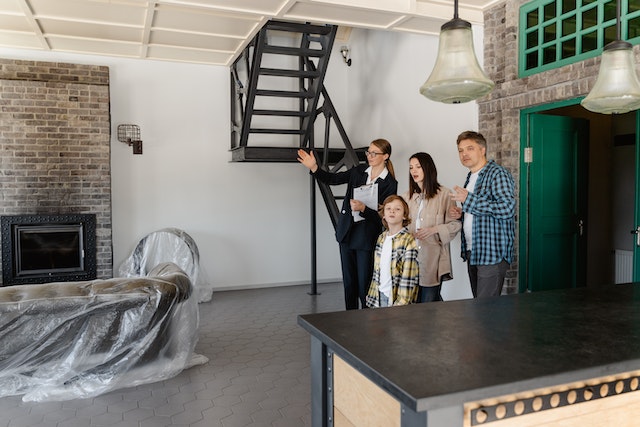It was not long ago when any property owner could post a rental listing online and have a qualified tenant lined up to view and apply to rent their home. The demand for rentals far exceeded the supply during the 2021 housing boom. Any reasonably clean rental home was likely to be rented immediately after listing.
Those days are over in most markets, Chicago and the surrounding suburbs are no exception. It is now more important than ever to focus on a few key factors when renting out your home in Illinois.
1. Understand current local market conditions.
Today each tenant is much more informed and demanding than they have been in the past. A tenant does a significant amount of research. A landlord should be at least as informed as those looking to rent their home. Read up on rentals in your area. Check local listings in your neighborhood.
There are several sites such as Zillow, apartments.com, realtor.com, and others that anyone can access. If you have a Realtor friend, ask them to help with some closed rental comps in your area.
2. Get in tune with the expectations of a tenant.
The days of dark and dingy rental properties with scuffed paint and matted carpet may not be completely gone, but that day is close in many areas. Rental listing websites and social media are flooded with photos of beautifully renovated properties and advertisements for high-end rental communities in almost every market.

While a landlord may not be able to compete with the pool and fitness center, a fresh coat of paint, some new carpet, and updated light fixtures go a long way. A thorough deep cleaning is also a must. If a landlord only has a few hundred dollars to spend, spend it on a professional house cleaning.
3. Determine your property rules.
Know your rules and set your boundaries before listing your property for rent. Are you, as the landlord, going to allow pets? If so, how many, and what size? Is smoking allowed? Will you allow grills? Can tenants install satellite dishes or their appliances? There are dozens of items to consider. If you live in a community with an HOA, they will have their own rules as well which must be followed by your tenant.
Pro tip: Always provide tenants with a set of those rules in the lease agreement and make them confirm in writing that they will follow them or pay the associated fines. Knowing your rules will allow you to answer questions quickly and help you avoid being talked into an uncomfortable tenant situation due to being unprepared.
4. Set an appropriate rental price.
Landlords must do their research and price their property based on the current market conditions as well as their urgency. If landlords still live in the unit or own the home free and clear they may be able to wait things out and ask a bit more. If your property is currently vacant and you are paying a mortgage, utility bills, and other expenses to carry the property then the vacancy is your biggest expense.

Price the property aggressively enough to stop the outflow of expenses and start generating rental income. The highest-priced rental in your area may have been sitting on the market unrented for the last six months. Don’t assume that number is the appropriate price.
Base your asking rental rate upon the properties that have been rented already and the average price you see comparable homes listed for in the area. You can then use that number as a baseline and adjust up or down based on your urgency. By setting an appropriate monthly rent you can keep your property competitive and maximize your rental income.
5. Be available and responsive to calls and requests for showings.
If landlords plan to rent a home by the "owner" it’s their name, phone number, and email address going out into the world. Expect plenty of inquiries and be prepared to respond quickly. In many cases, the best potential renters keep an eye on the rental market waiting for the right property to pop up.
If that happens to be yours, you need to be ready to take those calls and respond to messages and emails immediately. Be organized, take good notes, and follow up with those who are interested or request a showing.
This will not only help landlords make a good decision but will make their eventual tenants more comfortable working with them as the rental property owner/landlord. If landlords can’t call back about a showing, what will a prospective tenant think will happen if they have a maintenance emergency?

6. Know your limits and hire a professional if necessary.
Every market has a few responsive and professional property management companies who handle all these responsibilities from beginning to end. There are local laws, ordinances, legal disclosures, and other requirements that must be considered when dealing with a residential rental.
Property managers keep up with these ever-changing requirements, tax taws, and landlord-tenant laws regarding screening tenants, collecting security deposits, the Fair Housing Act, and more. Furthermore, they constantly monitor the local area for changes in pricing, demand, and market conditions. For the DIY landlord, sourcing a good real estate attorney is highly recommended to review your lease agreements.
Bottom Line
Renting out your house involves a multifaceted approach that requires a solid understanding of market conditions and tenant expectations, a firm grasp on your set of rules, strategic pricing, responsiveness to rental inquiries, and the self-awareness to know when you need to call in an expert.
By following these tips in each crucial area, you can enhance the overall experience for both you as a landlord and your tenants when renting your Illinois rental property.

.jpg)
